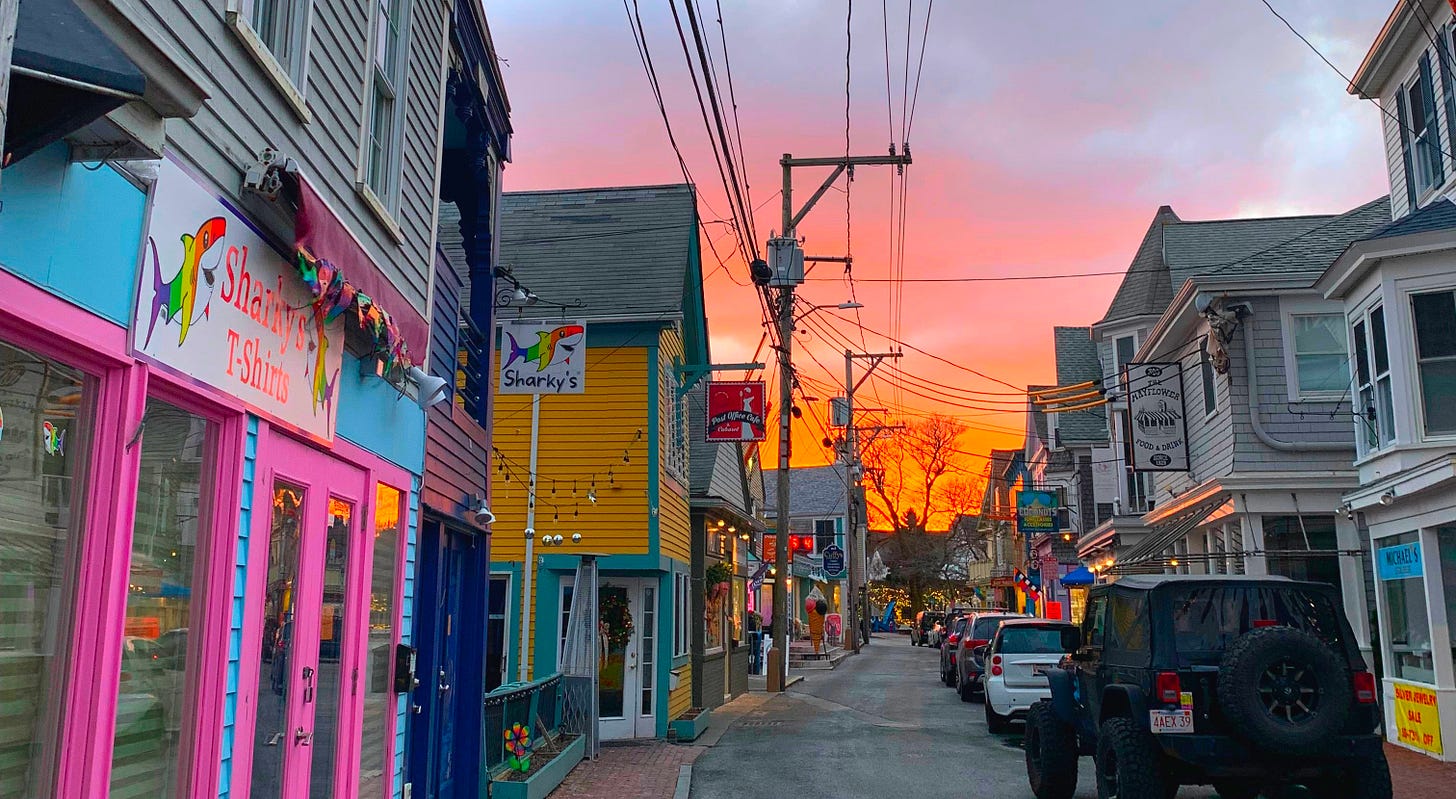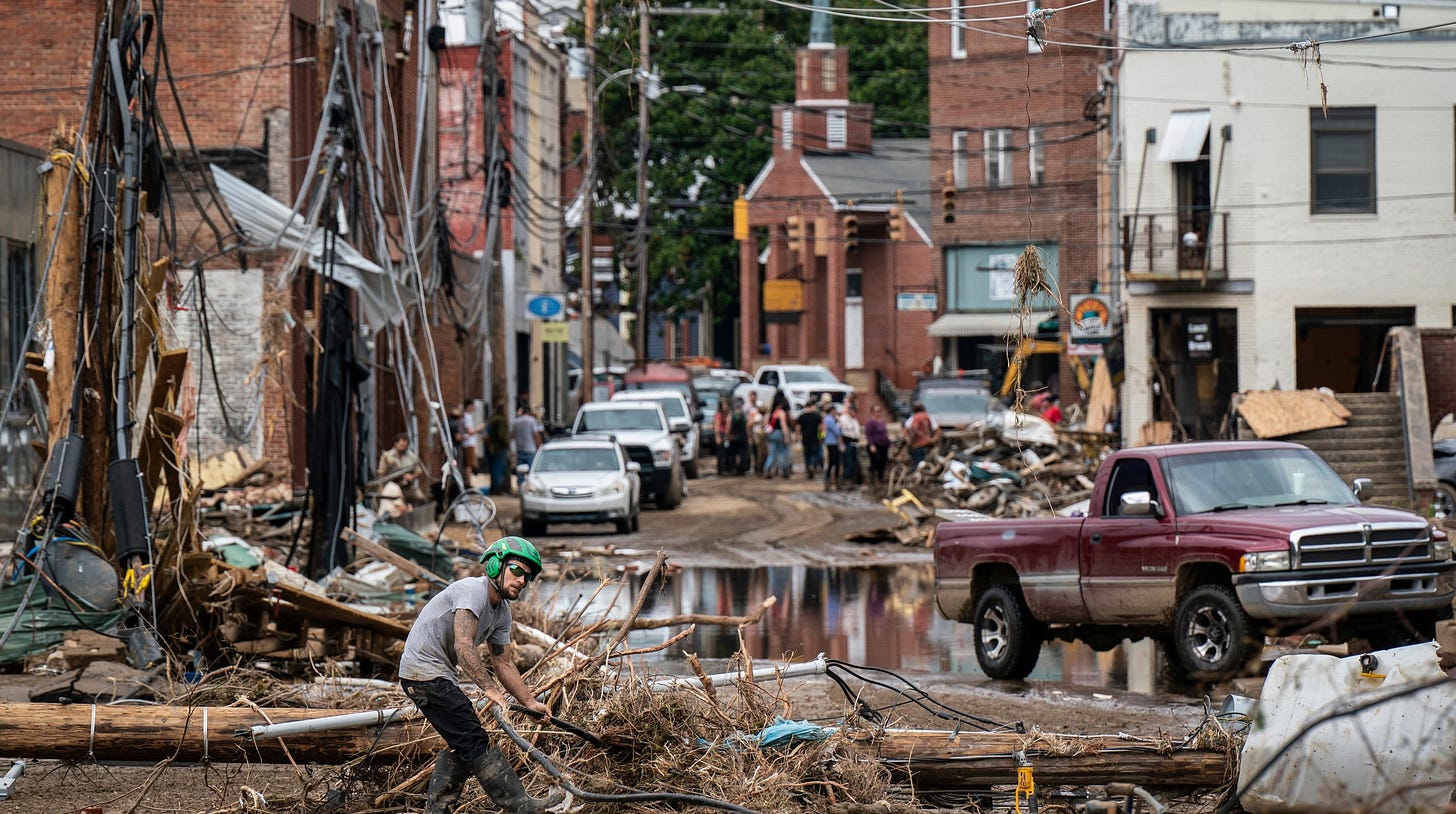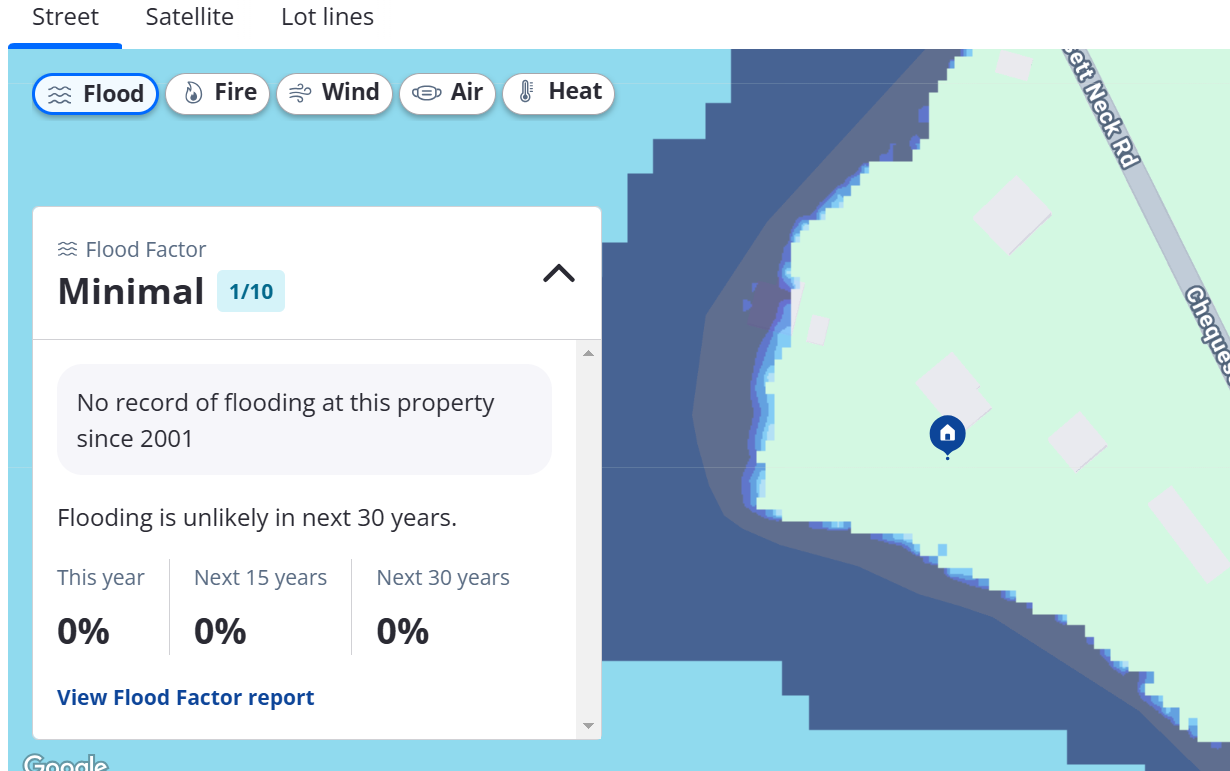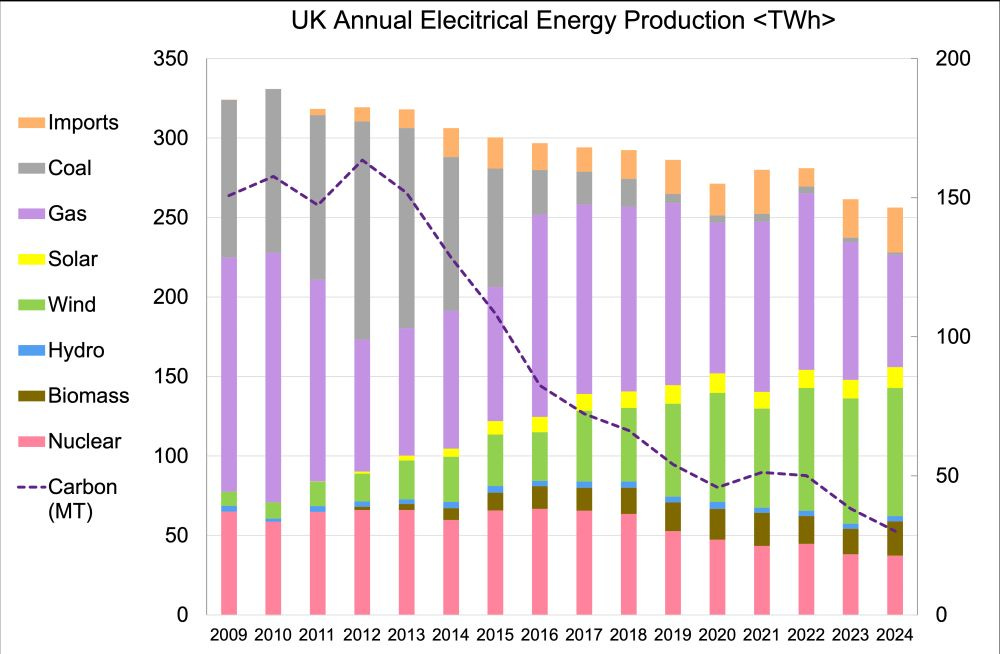2024 was a year of contradictions; let's kick off 2025 with 5 good things
Piping plovers making a comeback on the Cape; a geothermal breakthrough in MA; Zillow puts climate front of mind; NY, VT hold oil companies to account; and globally solar keeps beating projections.
Happy New Year!
What do I mean when I say 2024 was a year of contradictions?
2024 was the hottest year on record, and the consequences of the climate and weather disasters were devastating across the world. In July, SCOTUS overturned the Chevron doctrine, limiting the power of the EPA and other agencies to set and enforce environmental protections. And COP29, the UN’s forum for climate negotiations, while averting failure, delivered disappointing results. Overall, not great.
But good things happened as well, and in this post we’ll focus on five of them.
Contents:
Cape & Islands - More nesting piping plovers
Massachusetts - Gas utility switches entire neighborhood away from…gas.
United States - You broke it, you bought it. New York and Vermont try to make oil companies pay.
United States - Will my house flood? A new tool for home buyers.
International - New solar installations smash all projections.
Scroll to the end for some upcoming events. And next week we’ll return to more regular coverage, with a special look at progress in Falmouth.
Cape & Islands
1. Piping Plovers Enjoy Another Record Nesting Year in 2024
Mass Audubon, Dec 20, 2024
“Piping Plovers were on the brink of extinction in Massachusetts and now, through collaborative partnerships and strategic conservation strategies, this is a species recovering at an encouraging rate,” said Lyra Brennan, Director of Mass Audubon’s Coastal Waterbird Program. “Long-term investments in coastal communities and implementing a combination of wildlife management, science-based conservation, policy development, and education is paying off.”
Plovers fledged chicks at Dyer Prince Beach in Eastham for the first time ever this year, while Scusset Beach in Sagamore saw its first successful Plover pairing in more than a decade. Other hotspots included: a 56 percent increase in Plover pairs at Long Beach in Barnstable; an 83 percent productivity increase in chicks fledged at Lobsterville Beach in Aquinnah; and a doubling of Plover pairs on Tern Island in Chatham. Full story.
Massachusetts
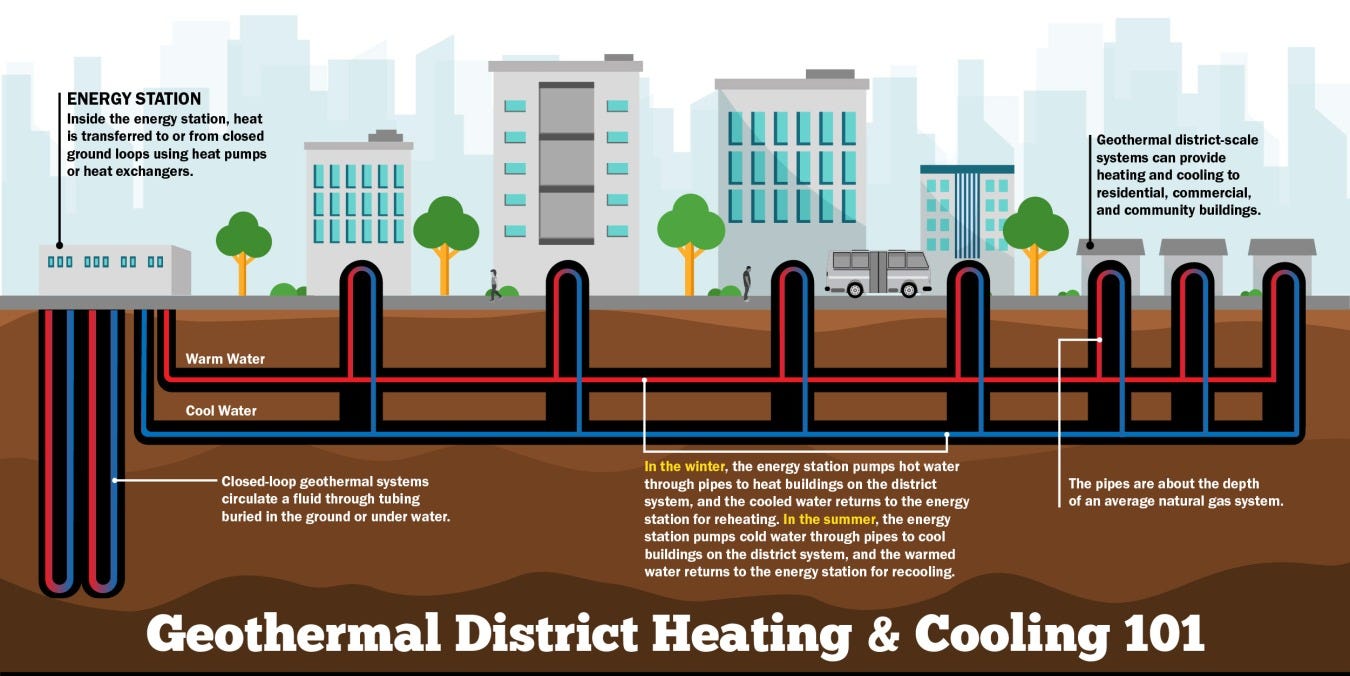
2. Eversource Energy’s Massachusetts geothermal system is a US first
The utility-owned system replaces fossil fuel heating and cooling across an entire neighborhood.
The nation’s first networked geothermal system owned by a utility went live June 4 in Framingham, Massachusetts.
The roughly $15 million network of ground-source heat pumps will cool and heat 36 buildings without fossil fuels, says Eversource Energy, the utility leading the project, reported Utility Dive.
The pilot will run for two years, and Eversource predicts it will reduce customer utility bills and slash carbon emissions, reported WBUR. Burning fossil fuels for buildings is responsible for an estimated 29% of US emissions.
While this technology isn’t new, this is the first time a gas company is building a networked geothermal system. And if it’s financially and logistically successful, environmentalists hope it can provide a business model for other utilities to wean themselves off of fossil fuels. WBUR, March 8, 2024
Equity in this approach
Working at a neighborhood level avoids the problem that arises when shifting off a gas system is left to individual consumers: those who can’t afford to install heatpumps stay on the gas system, and are left shouldering an increasing share of the cost of that system as the number of gas customers shrinks. “We actually want to see [the new system] deployed first in the most vulnerable communities so that they get the safest, most affordable, best energy earliest,” explained Zeyneb Magavi, Executive Director of the nonprofit HEET, which spearheaded the Framingham project, in an interview on Volts.
Additional benefit - relieving some pressure on the grid, as everything goes electric and drives up demand for electricity
Coupled with building envelope improvements, retrofitting around 70% of U.S. buildings with Geothermal Heat Pumps (GHPs) could reduce electricity demand by as much as 13% by 2050 versus decarbonizing without GHPs…This reduction in demand would avoid as much as 24,500 miles of new grid transmission lines by 2050—enough to cross the continental United States eight times, announced the US DOE in a report released in December, 2023.
A necessary change in Massachusetts law was included in the 2024 climate bill
In November, 2024, Governor Healy signed a new climate law that, among many other things, ”authorizes the gas utilities to sell geothermal heat.”
Up next - growth!
As of now, eight states have passed utility “gas to geothermal” permission laws in some form: Massachusetts, New York, Vermont, Colorado, Minnesota, Washington State, California, Maryland. Source: Volts, Jan 1, 2025.
20 pilot projects, all over the US, have filed with commissions for utilities to build, and there are many more projects outside of that regime. Additionally, 29 gas utilities meet regularly to share information. Source: Volts, Jan 1, 2025.
On December 11, the US Department of Energy (DOE) announced a $7.8M grant to HEET, the Boston-based nonprofit partner in the Framingham project, to fund an additional loop connected to the pilot project.
Go deeper
Thermal energy networks are the next big thing, Volts, Jan 1, 2025, clean energy journalist David Roberts talks with Zeyneb Magavi of HEET and Eric Bosworth of Eversource. ⏺️Listen here.
A good explainer: What’s up with networked geothermal? Fresh Energy, Joe Dammel, May 2022
United States
3. New York and Vermont Pass First Climate Change Cost Recovery Laws
2024’s most costly climate disasters caused over $170 Billion in damages in the US, data shows, according to the Guardian.
For the first time since the ranking was first compiled in 2018, there were two storms in a single year responsible for more than $50 Billion of losses: the hurricanes Helene and Milton that battered the US in September and October.
This past year, New York and Vermont passed laws to hold fossil fuel companies responsible for some of the costs of recovery, adaptation, and mitigation.
On May 30, Vermont’s Republican governor, Phil Scott, allowed Vermont’s S 259 — also referred to as the Climate Superfund Act — to become law without his signature, according to Sidley Austin LLP, a global law firm.
On December 26, New York Gov. Kathy Hochul signed the Climate Superfund Bill.
Under the superfund act, the world’s largest fossil fuel companies would be required to pay New York $75 billion over 25 years. Fees would be allocated according to a company’s share of emissions from 2000 to 2018.
By the year 2000, climate science was so well established that “no reasonable corporate actor could have failed to anticipate regulatory action to address its impacts,” lawmakers wrote in the bill, reported Inside Climate News.
At least 40 percent of the money contributed, $26.25 billion, would go toward climate adaptation projects in disadvantaged communities.
According to State Senator Liz Krueger, one of the bill’s sponsors, “Repairing from and preparing for extreme weather caused by climate change will cost more than half a trillion dollars statewide by 2050. That's over $65,000 per household, and that’s on top of the disruption, injury, and death that the climate crisis is causing in every corner of our state.”
Pushed by climate activists
To cheers of “climate change is coming to town,” protestors at the New York State Capitol building urged Hochul to close the year by signing what could be the nation’s second climate adaptation bill, Inside Climate News reported.
First in a Wave of Likely Climate Change Cost Recovery Laws
California, Maryland, and Massachusetts have all proposed legislation that would enact programs similar to the Climate Change Superfund Act in that they would require companies to pay compensation for purported GHG emissions. These proposals are similar in scope to the Vermont and New York legislation and target entities responsible for more than 1 billion metric tons of GHG emissions from 2000 to 2018 (Massachusetts) or 2000 to 2020 (California and Maryland), according to a post by the law firm Sidley Austin LLP.
Expect fossil fuel companies to fight these laws in court (cue evil music)
The American Petroleum Institute, which represents about 600 members of the fossil fuel industry, condemned the law. “This type of legislation represents nothing more than a punitive new fee on American energy, and we are evaluating our options moving forward,” an API spokesperson said in an emailed statement, according to Bloomberg Law.
4. Zillow, the top Real Estate site in the US, Adds Climate Risks to Listings
In October, Zillow, the country’s largest real estate search platform, began to display climate risk factors for floods, wildfires, high winds, heat, and air quality for every home they list, joining Redfin.com, Realtor.com, and Homes.com.
Redfin.com has been displaying climate risks since 2021, and this past year added air quality. Homes.com and Realtor.com added climate risks to their listings earlier in 2024.
Why it matters
Huge audience — traffic to Zillow Group’s mobile apps and sites in Q1, 2024, was 217 million average monthly unique users, with more than 3X the average daily active app users of its nearest competitor, Redfin.com, according to Zillow.
Potential to transform how Americans buy a home, according to Heatmap, and raise the importance of climate change for more people — in a 2024 survey, Redfin.com found that 56% of millenials, but only 31% of boomers were factoring climate risk into their purchase decisions.
An additional tool for home buyers to assess ongoing affordability — on average, the price of homeowners insurance rose by more than a third between 2020 and 2023, and by more than half in high-risk areas, according to research by Benjamin Keys at the Wharton School.
How useful/accurate are the risk ratings?
“It’s flawed, but not worthless”, according to Heatmap.
Zillow’s climate risk data comes from First Street Technology, a New York-based company that uses computer models to estimate the risk that weather and climate change pose to homes and buildings. It is far and away the most prominent company focused on modeling the physical risks of climate change.
But few experts believe that tools like First Street’s are capable of actually modeling the dangers of climate change at a property-by-property level. Heatmap, Oct, 2024.
Heatmap’s Guide to using Zillow’s climate risk data:
If Zillow tells you a property has flooded recently, take it seriously.
Use Zillow’s flood risk assessment as a starting place — but contact the local government to learn more.
Don’t hesitate to buy flood insurance.
Zillow probably underestimates a home’s wildfire risk, especially out west.
Wildfire models are especially bad at predicting the most destructive types of fires.
Your whole neighborhood matters when assessing flood or wildfire risk.
International
5. Global Solar Installations Smash 2024 Projections
Solar Power Continues to Surge, Ember Report by Euan Graham, Nic Fulghum, Sep 24, 2024
Ember’s analysis of national monthly data for solar capacity additions shows that the world will - once again - beat forecasts, even though expectations are higher than ever. (Ember is a global energy think tank.)
The world will install 593 GW of solar panels in 2024. That’s 29% more than was installed last year, maintaining strong growth even after an estimated 87% surge in 2023.
The massive step up in solar capacity installations in 2023 and 2024 has shifted perceptions around solar’s role in the energy transition. Solar will likely add more GWs in 2024 than the entire global increase in coal power capacity since 2010 (540 GW).
This now puts ambitious climate pledges within reach.
The key will be to ensure that countries have sufficient grid capacity to transport power to where it is needed, as well as develop battery storage capacity to complement solar outside of the sunniest hours. If these actions are taken, solar power could easily continue to surpass expectations throughout the rest of the decade. Full story.
And a last bit of encouraging news - the UK grid is dramatically cleaner than 16 years ago - no more coal!
Thank you to Tim Green, @otherprofgreen.bsky.social, Professor of Electrical Power Engineering at Imperial College London and Academic Lead for Sustainability, for the below graph:
Upcoming Events & Webinars

Jan 22, In Person — Center for Coastal Studies - Napi’s Lecture Series: Author Dennis Minksy
Author Dennis Minsky will deliver a talk about his latest book for the first of the season’s Napi’s Lectures. More information HERE. Registration not required. Free.
📅Wednesday, Jan 22, 5:00 - 6:30 pm 🗺️📌 Center for Coastal Studies Hiebert Marine Laboratory, 5 Holway Avenue, Provincetown, MA
Feb 4, Virtual — Woodwell Climate Research Center, Our Climate Future: Fact + Fiction
How do we create a rich, nuanced vision of our climate future that can motivate and guide climate action today? This virtual event brings together a diverse panel of experts to explore the relative strengths of science and science fiction—and the potential synergies between the two—in understanding what the future might look like. Information and registration HERE. Free.
📅Feb 4, 1:30-2:30 pm 🗺️📌Virtual
More Activities: Cape Cod Conservation Calendar
Check out the calender HERE. Many events are free!
Powered by the “Communications Cohort,” co-led by the Barnstable Land Trust and APCC.
Reminder
Mass Audubon, Wellfleet Bay — Accepting Proposals for the 2025 Cape Cod Natural History Conference until Jan 13
Wellfleet Bay invites researchers to submit proposals to present at the 28th Annual Cape Cod Natural History Conference.
The work to be presented may be the result of professional or personal study, and should focus on the ecology, status, distribution of local plants, animals, natural communities, or environmental restoration projects on the Cape.
Proposal submissions are due January 13th, 2025. The conference will take place on Saturday, March 8, 8:30 am-3:00 pm at Cape Cod Community College in Barnstable. More information HERE.




